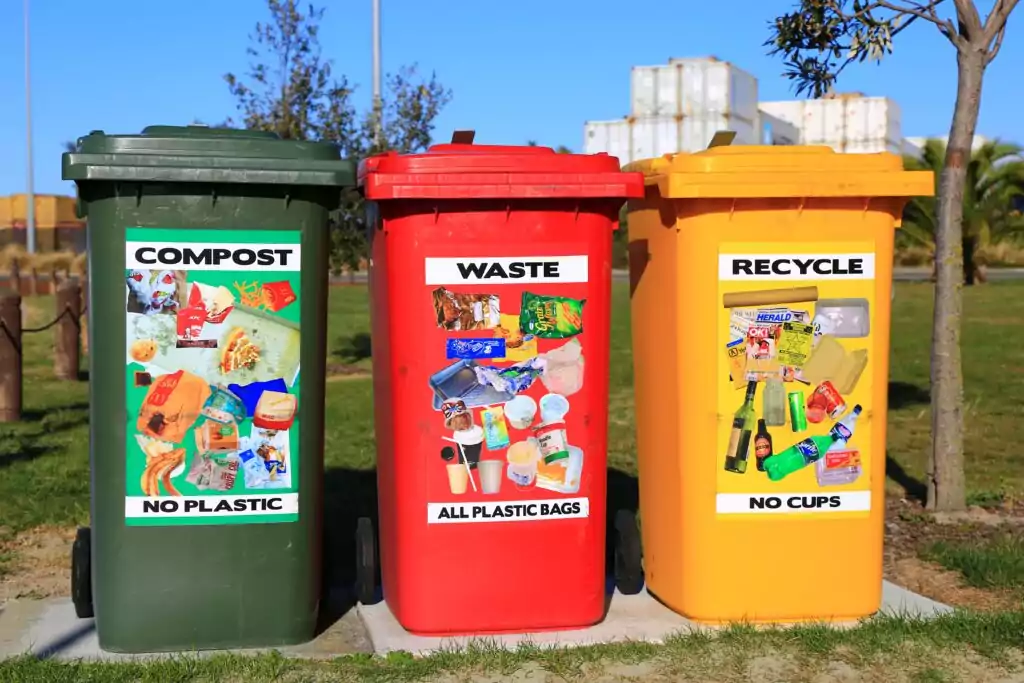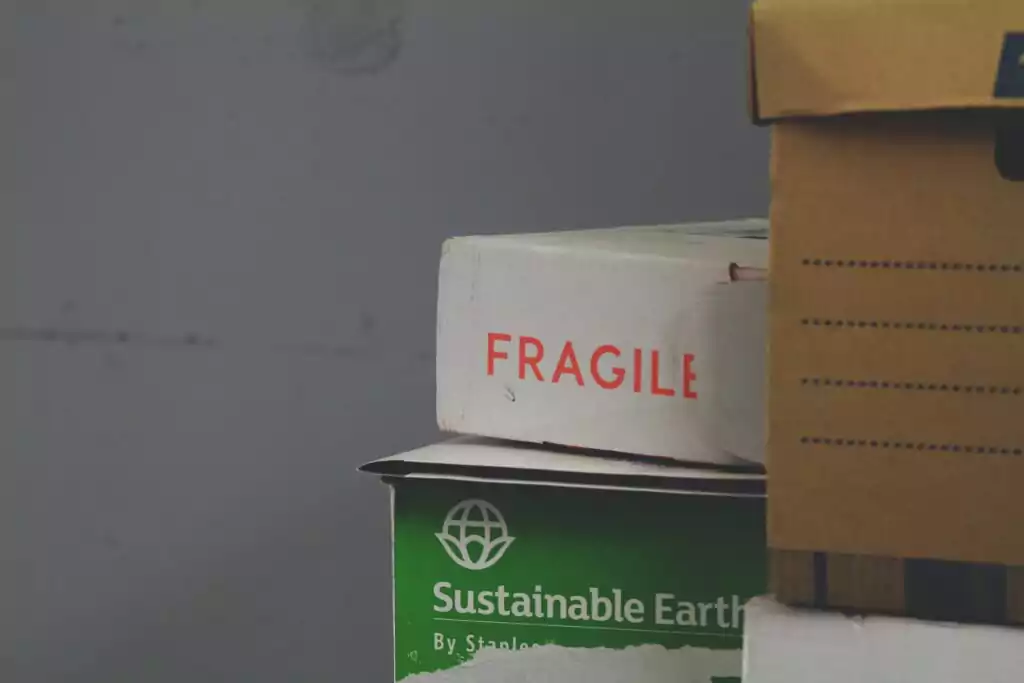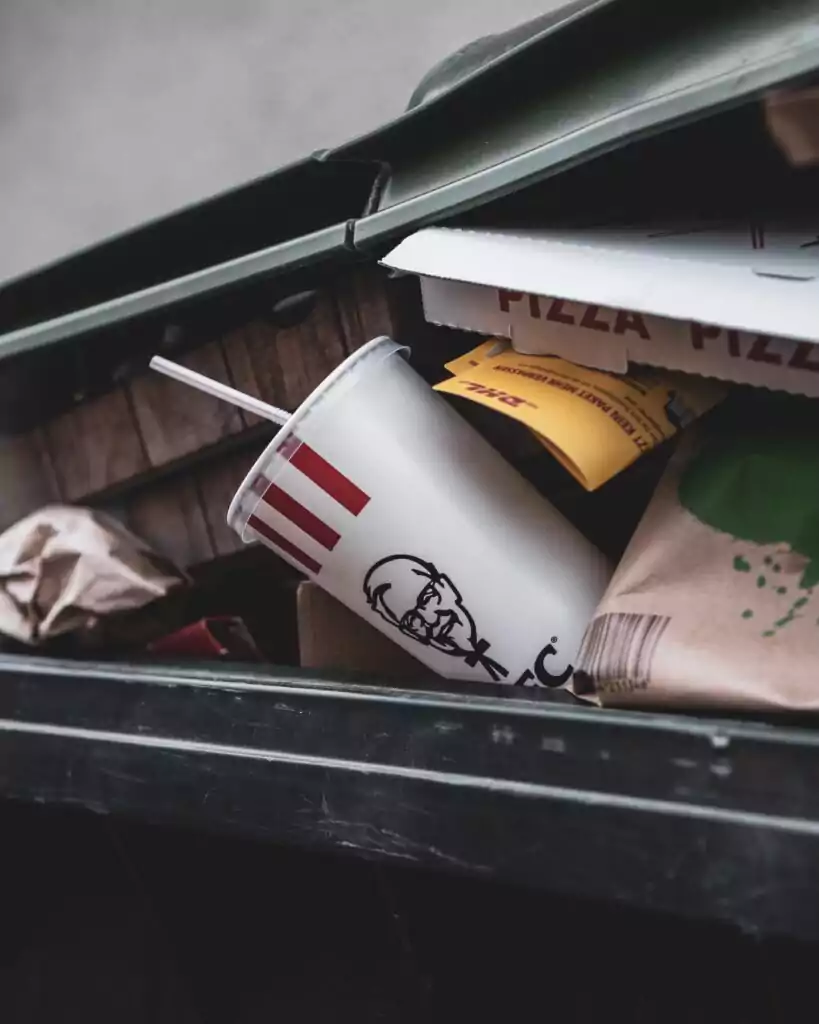According to the Tokyo Metro Government, the population of Tokyo – 13.99 million as of 2021 – makes up a staggering 11% of Japan’s total population. Japan itself currently has a net migration rate of 0.516 per 1000 population as of 2023 and in 2020, the country has received 85,000 new immigrants living in Japan on a long-term or permanent basis.
What all this implies is that people do shuffle in and out of Japan’s prefectures, cities, and wards on a somewhat consistent level; and that means packing up and moving their belongings and themselves from Location A to Location B.
It may not be on the forefront of your mind, because let’s face it, moving is stressful enough on its own, but the process of moving actually generates a lot of waste. Packing materials such as cardboard boxes, packing materials such as bubble wrap, and packing peanuts usually get discarded after a move and end up contributing to landfill buildup.
If you are someone who is in the process of moving or is planning to move, then here are some tips to help make your move more eco-friendly. If you’re renting a place with Village House, they offer move-in support with up to ¥30,000 cashback (conditions apply).
Recycle

One of the most effective and efficient ways to ensure a more eco-friendly move is to sort through your belongings and declutter your apartment or housing before you start packing. By doing so, you reduce the number of moving boxes and packing materials you’ll need and give unwanted and unneeded items a new and happy home.
Clothes are probably something that many people discard or donate when they move. Donating them to charity or your local thrift store goes a long way in fighting fast fashion, an industry that produces roughly 10% of global carbon emissions.
There are numerous ways to recycle belongings you may no longer want or need. Sort out your belongings into the following categories:
- Sell
- Donate
- Throw
The first category, for obvious reasons, holds the most incentive as you’ll be able to get some cash. Online marketplaces like Craigslist, Facebook Marketplace, Yahoo! Auctions, and Mercari are popular online platforms people in Japan utilize to sell their belongings. You can also try your luck at secondhand shops like Book Off, King Family, etc. though bear in mind, the financial reward will be low and non-negotiable.
If you’re pressed for time or not that bothered about making a little money from your unwanted items, then consider donating them to charity organizations or secondhand shops. Your local city hall may have a donation program so check with them.
If you’ve some small home and kitchen appliances and electronics you no longer need, check out https://www.renet.jp, a company specializing in the recycling of electronic waste. It’s certified by Japan’s Ministry of Environment and the process of sending them your unwanted electronics and household appliances is pretty easy – just fill out the application form on their website.
Moving Boxes

Moving boxes are an inevitability when moving as you need to pack your belongings into something for moving and transport. However, before going out to buy brand-new cardboard boxes, try asking your local supermarket or pharmacy for some. Not only is it free, which helps you save a bit on your moving budget, but reusing these cardboard boxes is a form of recycling and upcycling.
If you’re a frequent Amazon, Rakuten, etc., online shopper, consider saving the packing materials and boxes that your purchased items will be delivered in. Doing so will not only generate less waste but again, save you from buying moving boxes and packing materials.
Lastly, you can reduce the need for cardboard boxes by utilizing storage items you may already have at home. For example, leave your clothes in your dresser and drawers and simply seal or tape them up to prevent the drawers from opening during the move. Make use of backpacks and suitcases to pack your belongings in as well. Your rubbish bins can also be used as storage containers – simply clean them out and stash your cleaning supplies, gardening tools, power tools, etc. in them.
Towels
Packing materials such as bubble wrap and packing peanuts more often than not get thrown away after a move is complete and these products usually end up in landfills where they end up decomposing and polluting the soil and water supply in the area.
Towels are a great alternative to packing materials and the good thing is that you’ll most likely use them again! So instead of purchasing bubble wrap and packing peanuts, consider lining the bottom and sides of your moving boxes with towels for additional padding and to fill up empty spaces to prevent items from rolling around during moving and transport. You can also wrap fragile items in towels before packing them in the boxes.
Food Waste

You can cut down on the amount of food waste your move may generate by planning ahead. Take inventory of what food you have left in your fridge and pantry and plan your meals around them. Try to consume all the perishable and frozen foods first to avoid having to throw them out. Long-life foods can be packed, given away, or donated if there’s still some left close to or on a moving day. You can, for example, give out those last packs of cookies, chips, bottles of water, juice boxes etc. to the movers as a sort of thank you for their help and assistance.
Another way to cut down on food waste is to throw a moving-out party. It can be a way of saying bye to your neighbors and friends, and to thank them for any help they’ve provided you over the years. You can also “gift” them with a bar of chocolate, a packet of chips, etc. as a party bag favor.
New Home
When going to inspect your potential new home, make a note of what you may or may not need to bring with you from your current abode. If the place is furnished for example, then consider selling or donating your old furniture. If your furniture possibly won’t fit in the dimensions of your new place, don’t waste precious space in the moving truck; sell or donate it instead and check out your local secondhand furniture shop or online for a replacement.
If you’re thinking of moving but not sure where to start, check out Village House, a real estate organization that specializes in budget-friendly rental properties with low initial costs.
Related articles:
- Supporting Sustainability: An Introduction to Eco-Friendly Furniture
- Eco-Friendly Moving: Ideas to Save Energy and Reduce Wastage
- Sustainable Home Design Tips for Your Apartment
- How To Save Money When Moving
- 5 Steps On Getting Settled In Your New Home



